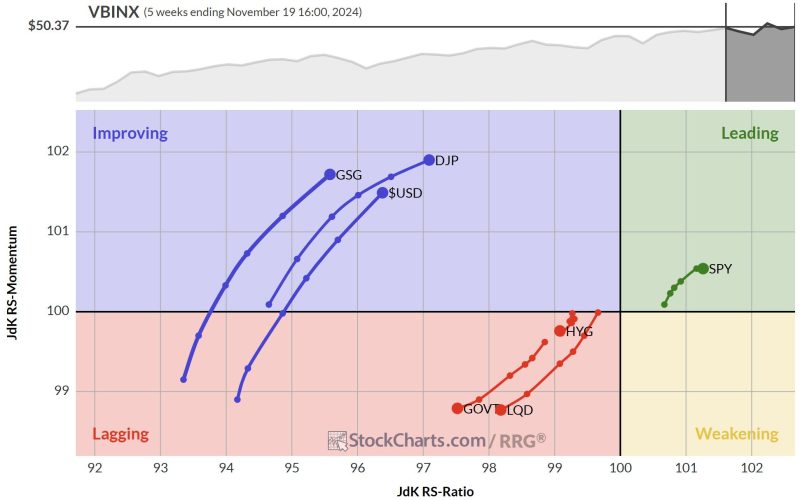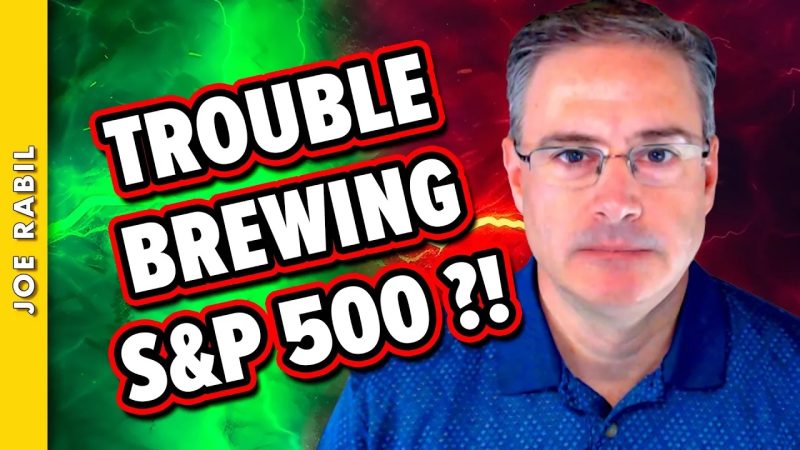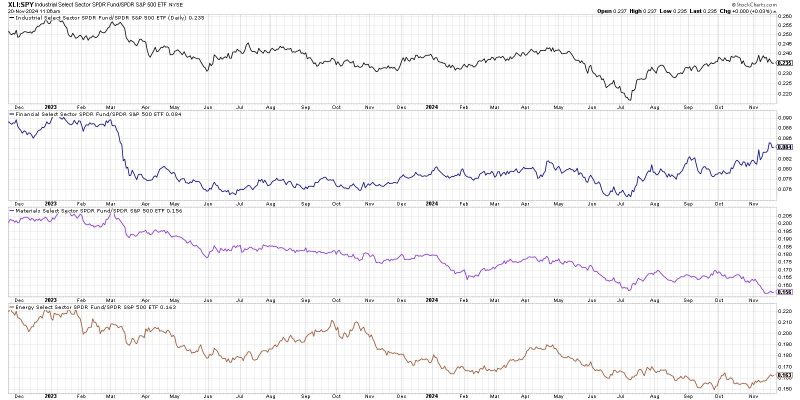With cryptocurrencies evolving from speculative assets to a global economic force, investors face a critical question: how can you filter out the noise to pinpoint coins that truly matter?
Whether cryptocurrency trading is part of your financial strategy or not, it’s becoming clear that certain coins have moved beyond speculation and are now positioned as potential drivers of the future global economy.
Still, there’s a lot of market noise in the crypto space. You need to distinguish real geopolitical developments surrounding certain coins, domestic developments affecting crypto (like Trump’s proposal to scale back the SEC’s ability to regulate crypto), and market speculation in response to the above, which can affect many cryptocurrencies, even the most obscure ones.
A Snapshot of Crypto Leaders Over Time
Given cryptocurrencies’ sensitivity to the political and economic landscape, there will be a lot of volatility. One way to sort out the leaders is to view the StockCharts MarketCarpets for Cryptocurrencies (use the Select Group dropdown menu) over lookback periods, say, from one day to three months or more.
I like to measure Up Days minus Down Days to get a general sense of the crypto market’s performance in breadth. To do this, go to the Measurements drop-down menu and select [Up Days] – [Down Days]. Scrolling over each square will show how many up or down days are prevalent over a specified period. For instance, in 5 days, if there are 3 up days and 2 down days, the “score,” if we can call it that, will be +1 (as 3 – 2 = 1). The point here is that this view might give you a better filter for identifying market leaders.
Here’s a 5-day view of market leaders in the crypto space.
FIGURE 1. 5-DAY MARKETCARPETS VIEW OF THE CRYPTO MARKET MEASURING UP MINUS DOWN DAYS.Image source: StockCharts.com. For educational purposes.
Don’t mind the particulars for now. Just note the overall performance of the market. Compare it to this 1-month view.
FIGURE 2. 1-MONTH MARKETCARPETS VIEW OF THE CRYPTO MARKET MEASURING UP MINUS DOWN DAYS. Image source: StockCharts.com. For educational purposes.
Now, notice how there are fewer deep “greens” indicating fewer outperformers. The only coin of significance is Dogecoin ($DOGEUSD). The rest are relatively obscure. Keep that in mind as I zoom out to a 3-month view.
FIGURE 3. 3-MONTH MARKETCARPETS VIEW OF THE CRYPTO MARKET MEASURING UP MINUS DOWN DAYS.Image source: StockCharts.com. For educational purposes.
You have a few more market leaders going back a quarter. But the only liquidly-traded one is still Dogecoin. DOGE stands out as one of the top three non-stablecoin cryptocurrencies worth watching, with a unique connection to the potential “Trump 2.0” economy.
Three Crytpos to Watch Ahead of Trump 2.0
So, here they are—Bitcoin ($BTCUSD), Ethereum ($ETHUSD), and, strangely, Dogecoin ($DOGEUSD). Why?
Trump has talked about creating a strategic Bitcoin reserve as he aims to make the US the “crypto capital of the planet.” With a crypto-friendly administration and, presumably, fewer regulatory barriers, Ethereum—the second-largest cryptocurrency by market cap—will likely see growth alongside Bitcoin.
The Dogecoin case sounds a little weird. Its boost seems to be a speculative conflation of DOGE, the crypto’s ticker, and DOGE, the acronym for the proposed Department of Governmental Efficiency, co-led by Elon Musk, who happens to be a strong proponent of Dogecoin. Whatever the investment case may be, this symbolic conflation was enough to fuel the coin’s record three-year high.
Let’s look at the technicals, starting with a daily chart of Bitcoin.
FIGURE 4. DAILY CHART OF $BTCUSD. Did broad retail buying just kick in?Chart source: StockCharts.com. For educational purposes.
According to the Relative Strength Index (RSI), Bitcoin, which closed above a record-high $90K level, is well within the overbought range, hinting at a potential pullback. You’re starting to see that potentially taking shape.
Looking at our two momentum indicators below, the Chaikin Money Flow (CMF) shows three deep yet flattening surges suggesting high buying pressure, yet, in the On Balance Volume (OBV), the last surge shows a breakout (see green circle). Could this suggest that institutional buying occurred in September and October, followed by increased retail participation in November? If that’s the case, it will be interesting to observe how Bitcoin performs after taking a breather.
On the chart, there are three Quadrant Lines. The first two demonstrate how prices, in an uptrend, tend to bounce between the 50% or 75% lines (2nd or 3rd quadrants). The third quadrant line on the right is the one you should keep an eye on. If Bitcoin pulls back, it should bounce above the last quadrant, which also coincides with two critical levels of resistance-turned-support (see dotted magenta lines).
Let’s shift over to a daily chart of Ethereum ($ETHUSD).
FIGURE 5. DAILY CHART OF $ETHUSD. Smart money selling as retail investors scoop it up?Chart source: StockCharts.com. For educational purposes.
Like Bitcoin, Ethereum ($ETHUSD) is pulling back from its RSI-measured overbought level. However, unlike Bitcoin, the CMF and OBV are in stark divergence, possibly indicating that “smart money” buying has declined while retail buying has ramped up. If anything, this confirms forecasts of near-term weakness.
Unlike Bitcoin, Ethereum did not hit an all-time high, but this can also mean the crypto has room to run. You might expect a bounce at the 50% and 61.8% Fibonacci retracement levels (see green circle on the chart) which is further buffered by support at $2,730 (see green dotted line). However, if the uptrend resumes, take note of the three resistance levels ahead, highlighted by the magenta lines where you may see profit-taking and selling.
Let’s now look at a daily chart of Dogecoin ($DOGEUSD).
Figure 6. DAILY CHART OF $DOGEUSD. This chart looks like a meme stock, but the divergence between the CMF and OBV shows the difference between smart money and retail accumulation.Chart source: StockCharts.com. For educational purposes.
Similar to Bitcoin, Dogecoin also has a three-year high. But unlike Bitcoin and Ethereum, there’s no indication that Dogecoin will be a reserve asset, nor does it share Ethereum’s reputation for technological innovation. It started as a meme coin, and the only thing that seems to be driving its recent surge is its association with Elon Musk.
The RSI shows that Dogecoin is well-overbought. If you look at the CMF and OBV, note how larger players began accumulating Dogecoin with tremendous buying pressure long before the retail crowd noticed (see magenta square). Now, the sharp divergence shows how “smart money” may be pulling back while retail traders are jumping in.
If you find a reason to buy Dogecoin beyond pure speculation, be aware that it has plenty of room to tumble. Note the 61.8% Fib retracement level coinciding with the coin’s 2024 high of $0.22. If it fails to bounce at this level, then the meme is over. But considering how unpredictable this coin is, look for a bounce near the 50% Fib retracement.
At the Close
In a market buzzing with hype, separating the legit from the noise takes more than following news and taking a quick glance—it’s all about using the right tools. For me, it’s about viewing MarketCarpets over different timeframes, checking up and down days to see which crypto is leading the pack. With Bitcoin and Ethereum, there’s solid institutional backing, showing they’ve got potential staying power. Dogecoin, though, feels more like a meme-fueled thrill ride, getting its boost from Elon Musk’s influence rather than fundamentals.
By looking at the daily charts and contrasting the CMF with the OBV, you can spot where the real buying pressure is—seeing institutional money flow versus the retail players. In the end, separating the signal from the noise comes down to reading the charts using the right tools.
Disclaimer: This blog is for educational purposes only and should not be construed as financial advice. The ideas and strategies should never be used without first assessing your own personal and financial situation, or without consulting a financial professional.




